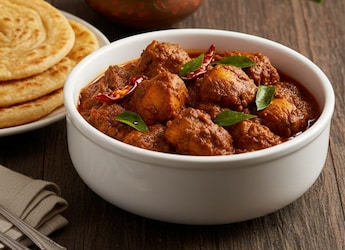Given the sedentary lifestyle that most of us live today, diseases like diabetes and hypertension are spreading at a faster rate than they should. Even a healthy person with no family history can be found afflicted with diabetes due to unhealthy eating habits, which is more commonplace in urban population. India is already grappling with a surge in the diabetes cases. According to the statistics, 77 million adults currently have diabetes and this number is expected to almost double to 134 million by the year 2045!
As shocking as the data is, more alarming is the prediction that more than half of men and two thirds of women currently aged 20 years and residing in metro cities of India are likely to develop high blood sugar at some point of time in their lifetime. And most of the cases would be type 2 diabetes.
The research titled 'Lifetime risk of diabetes in metropolitan cities in India' was carried out by a team of authors in India, U.K. and U.S. The study was led by Dr. Shammi Luhar, Department of Public Health and Primary Care, University of Cambridge, U.K. The team included Professor Nikhil Tandon from the Department of Endocrinology and Metabolism, All India Institute of Medical Sciences, Delhi. The study was published in Diabetologia (the journal of the European Association for the Study of Diabetes).
For the study, the researchers studied data from the Centre for Cardiometabolic Risk Reduction in South Asia (2010-2018) and analysed age-, sex- and BMI-specific incidence rates of diabetes in urban India. Data on mortality rate from Indian Council for Medical Research was also observed.
The authors estimate that around 55% of 20-year-old men and 65% of 20-year-old women are at a risk of developing the condition. Moreover, the risk is greater in obese urban population: 86% among 20-year-old women and 87% among men.
(Also Read: Experts Reveal How Diabetics Can Include Potatoes In Their Diet)
Diabetes diet: Consume a healthy diet to manage blood sugar levels
Photo Credit: iStock
Expert Tips To Manage Diabetes:
The researchers blame lowering diet quality and decrease in physical activities as the main causes of rise in diabetes cases in metropolitan cities of India.
A healthy diet, including low-glycemic foods, can play a significant role in preventing and managing high blood sugar. Here are expert tips for you and your family to eat right and prevent and manage diabetes effectively.
Eat More Fibre-Rich Foods
Whole grains, fruits, whole dals and vegetables are good sources of dietary fibre, both soluble and insoluble fibre.
Don't Avoid Healthy Carbs
Healthy carbs give you energy that helps control diabetes. Whole grains, millets, whole fruits and vegetables, plant proteins like legumes and nuts - all are rich in healthy carbs.
Protein Is Important
Healthy proteins include whole dals, legumes, soy, yogurt, fish and white meat. Avoid red meat and processed meats.
Healthy Fats Are Good
Monounsaturated fats and poly unsaturated fats are healthy fats. Peanut oil, rice bran oil, safflower oil, mustard or til oil and extra virgin olive oil are good sources of healthy fats.
Nuts And Seeds
Eat the variety of nuts and seeds daily. A handful of nuts and a tsp of seeds are enough for daily intake.
(This content including advice provides generic information only. It is in no way a substitute for qualified medical opinion. Always consult a specialist or your own doctor for more information. NDTV does not claim responsibility for this information.)
